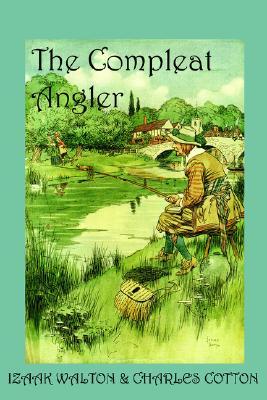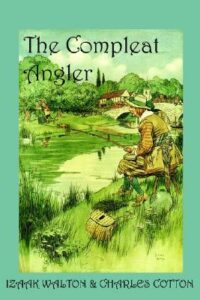The epistle to the reader
byThe epistle to the reader opens not with pride, but with gentle humility. The author speaks plainly, stating that his intent is not to impress but to share. He notes that the book was written to please others more than himself, prompted by kind encouragement rather than ambition. If it fails to entertain, he only asks that it be forgiven, not judged too harshly. There’s a quiet grace in that appeal, one that softens the expectations of the audience. He doesn’t boast of polished rhetoric or deep literary skill. Instead, he hopes the charm of his honest reflections might offer some value, especially to those who understand the leisure of angling. For readers driven by harsh critique or distracted by busyness, he admits the book may not be for them.
Throughout this introduction, the author carefully manages the reader’s expectations. He weaves in mild humor and cheer, not to be flippant, but to capture the spirit of his angling days. These were light-hearted times, spent with friends who are now absent, and their memory colors his tone. The pages, then, are not just instructions—they are recollections. Each cast of the line carries a story, each fish drawn a reminder of shared laughter. He gently suggests that even if the prose fails to please, the illustrations—carefully prepared—might still catch the eye. There is pride in their detail, and he hopes they speak to the effort poured into the project. More than that, they reflect his respect for the natural world, especially the creatures that have long brought joy to those with the patience to seek them.
Anticipating skepticism, he openly addresses those who might disagree with his accounts of fish habits or breeding seasons. He reminds readers that rivers vary, and with them, the behavior of fish. What is true in one county might not hold in another, and so differences should be met with curiosity, not criticism. He also admits the challenge of teaching angling through the written word. It is a skill not easily confined to pages, more felt than explained, learned by doing rather than reading. Like arithmetic or music, angling has layers of complexity. He cannot promise to cover them all, but he offers his observations with sincerity. His aim is not to instruct as a master, but to share as a friend—one who has spent time by the water and hopes others will too.
He dismisses the idea of literary fame or financial reward, clarifying that the book was never meant as a commercial success. Its true value lies in connection: the gentle wisdom passed between anglers, the peace found in quiet moments outdoors. He invites readers not to see the text as a lecture, but as a leisurely stroll beside the river. Along the way, they may pause, reflect, and perhaps laugh at the stories and thoughts scattered throughout. It’s a companion piece, not a manual—its purpose to warm the heart more than sharpen the skill. If that warmth is felt, the author’s goal has been met. His words become more than ink; they become a shared experience between writer and reader.
Though modest in delivery, the epistle subtly defends the dignity of angling itself. It is not a frivolous pursuit, he implies, but one that fosters patience, observation, and appreciation for life’s small details. It draws the mind away from anxiety, teaching focus without force, offering joy without extravagance. In this light, angling becomes more than a hobby. It becomes a kind of philosophy—a way of living calmly and attentively. The author does not preach this directly, but the message is there, gently threaded through his humility. He hopes that even a single reader may be reminded to find meaning in simple joys. Such a response would mean more to him than any formal praise.
The closing lines carry a soft but resonant wish. He does not beg to be liked, nor does he expect applause. Instead, he expresses hope that readers will step into the pages with the same openness he had in writing them. If they smile, reflect, or feel soothed, the book has done its part. And perhaps, long after the final page is turned, the gentle rhythm of angling—and the quiet joy of thoughtful companionship—will remain with them. That, more than anything, is the gift he offers.


